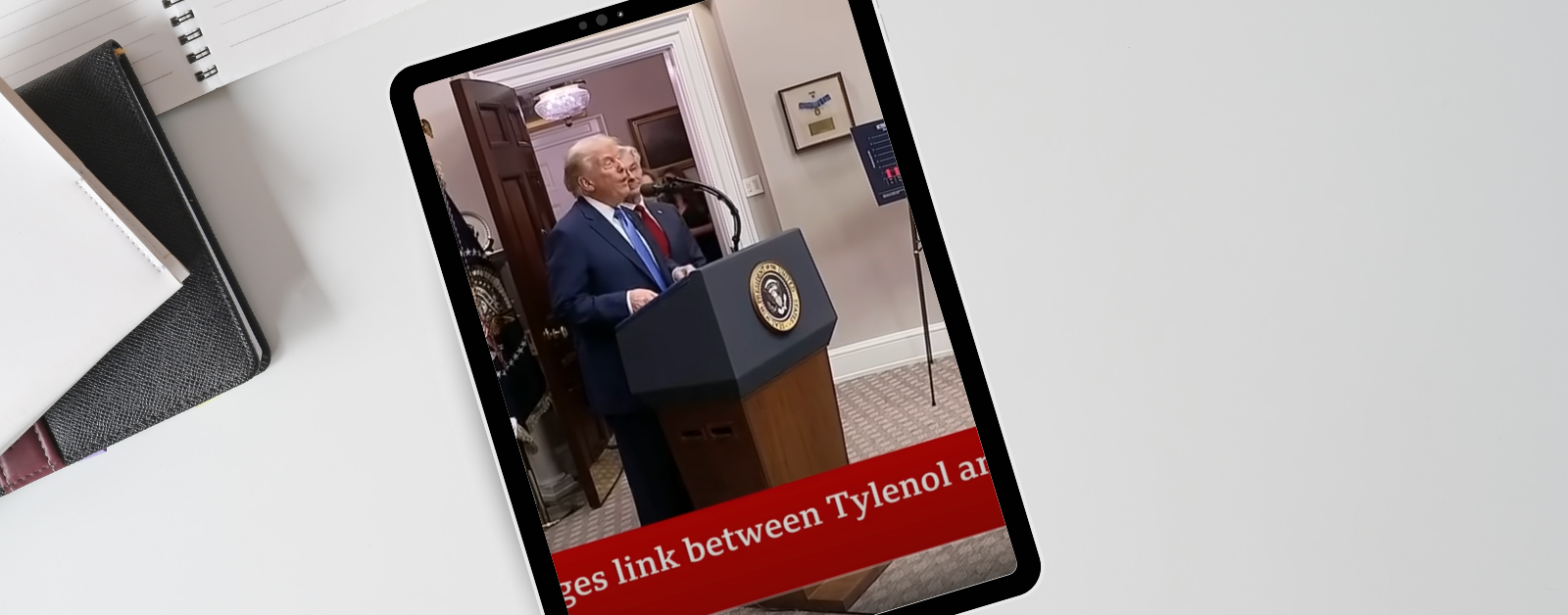I’m pondering President Trump’s words about autism and autism research this week. He tapped into some of the pain that many parents and individuals within the autism community feel. It’s a good thing for all of us to seek to understand and make space for pain. It is a good thing to ask questions about where that pain comes from. It is a good thing to seek to alleviate pain.
And yet President Trump’s (and Secretary Kennedy’s) approach to autism research is both reckless and deceptive. Not only are they proposing solutions without scientific basis, they are also advocating that pregnant women endanger their babies. Beyond that, they are deceiving parents into thinking they should put their hope in a good future for their children by avoiding Tylenol and childhood vaccinations. President Trump is giving false hope that a simple medical solution exists to a “problem” many families face.
Hope is a fragile place. It’s the line that tethers an uncertain, painful, and scary present moment to a future promise of peace and safety. When it comes to autism–and to other intellectual, developmental, and physical disabilities–there is great reason to hope.
But the hope that parents and individuals with disabilities have is neither simple nor certain. It does not come from a magic pill or a magic wand. Rather, our hope comes from envisioning and forming communities in which we can receive and even celebrate different ways of being. Our hope comes from public policies that support our children’s educations and support them in finding meaningful work and living with peers and connecting and contributing to our communities. Our hope comes from a careful understanding of the underlying causes of pain and suffering and careful approaches to alleviating that pain. Our hope comes from disobeying the cultural message that says disability equals defect and disorder and deficit. Our hope comes from delighting in the goodness and beauty of life as it has been given.
I learned early on in our daughter Penny’s life that our hope did not lie in fixing or curing Down syndrome. We availed ourselves of medical technologies like heart surgery, ear tubes, and glasses that would help her. But we also learned to receive her—and her small stature, and her slower pace of learning, and her bright smiles, and her gentleness—as a good gift in and of herself.
We should certainly devote resources to studying the genetic and environmental factors that can contribute to autism spectrum disorder. And in the places where autism causes pain and isolation, we should look at ways to alleviate that pain. We should also recognize the role our entire society plays in exacerbating and even causing that pain and isolation.
President Trump and Secretary Kennedy are offering false promises based on incomplete research and unwarranted assumptions. Our hope lies not in eradicating autism but in good research, strong social supports, and becoming a society in which we welcome one another, belong to one another, and care for one another well.
SUBSCRIBE to my Substack newsletter: amyjuliabecker.substack.com
JOIN the conversation on Instagram: @amyjuliabecker
LISTEN to my podcasts: amyjuliabecker.com/shows/
CONNECT on YouTube: Amy Julia Becker on YouTube



